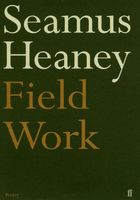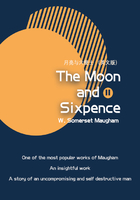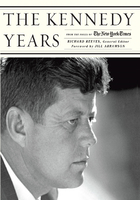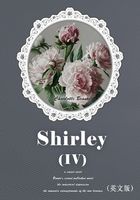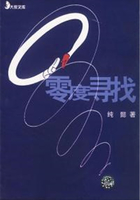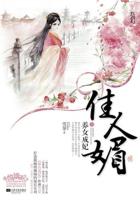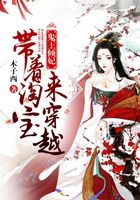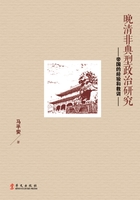To John: “Your love is life, for love is land” (LM)
To Julius Bernstein, 1931–2013 (JB)
The seventies were a remarkable time for modern music, producing an enormous diversity of artists across multiple genres. Rock was split into subcategories: progressive, glam, heavy metal, hard rock, and art rock. During the decade, strangely, these sounds co-habited the same airwaves alongside disco, reggae, electro, funk, and punk. By the late seventies, hip-hop and rap had begun to emerge. There were no rules, but somehow, having a unique identity was a requirement, and even the performers following a trend invariably carved out their own personalities. Everything was handmade: analog, no computers, and no digital vocal tuning.
My favored stick of rock was glam, where Bowie, T. Rex, Roxy Music, Sparks, and Cockney Rebel provided the soundtrack to my youth. Each had an individually captivating sound, and together they told the story I wanted to hear through those times in Britain. Other kids at school were lost in a haze of Pink Floyd and Genesis, or were queuing endlessly to secure Led Zeppelin tickets. We were all members of different factions, but wherever you belonged, the music was inspirational. It was an important voice in our culture, a way for our generation to express its singularity.
In 1976, suddenly everything else seemed "last summer." Punk exploded, blazing through much of the musical landscape that had come beforehand. It transformed the way we were. It was a revelation, an unprecedented surge of energy, but it also burned out fast. It was from these ashes that the music of the next decade was to rise. Bands like the Police, the Cure, and Siouxsie and the Banshees had already established their own sound and were able to drive smoothly into the eighties. Adam and the Ants remodeled and made the transition. Generation X did not—though Billy Idol had resurfaced as a solo artist by 1981.
In the afterglow of punk, there were unexpected outcomes. Being in a band now seemed startlingly possible; the obstacles had been removed. Everything was more accessible. Indie record labels were thriving. Small venues were springing up in every town. The music press was actively searching for the next sound. There were even opportunities to get played on late-night radio. Attitude and ideas had overthrown musical virtuosity. Just a few years earlier, when superstars were untouchable, none of this would have been attainable.
Technology was advancing fast, and the synthesizer was finally affordable, resulting in a stream of artists who integrated electronics into their organic sound. Gary Numan, Ultravox, and Japan were among those bridging the decades. The Human League became one of Britain's first purely electronic acts, and Joy Division fused punk, synths, and beats to pioneer the way for all that was to follow. Through the blurred edges of this period, a new wave of bands had been gestating and plotting their grand entrance. Those who materialized included U2, Depeche Mode, Spandau Ballet, Culture Club, Tears for Fears, the Smiths, and Duran Duran. While we each had entirely distinctive sounds and outlooks, there was a common thread: We had all experienced the U.K. during the seventies, under the same gray skies, enduring political turbulence and social unrest. We were different reflections of similar views, reactionaries to our surroundings. Some chose to express the darkness, others looked toward the light. In Duran Duran's case, we attempted to strike a balance between the two. We wanted to lift people's spirits, rather than fight misery with misery. If you limit yourself to grainy black and white, you can create some beautiful imagery, but sometimes we simply wanted to use full, widescreen technicolor.
Although for a period of two years I was principally transfixed by punk, it was in 1977 that I properly discovered electronic music via Kraftwerk, who proved to be a lasting inspiration. Later that year, I also heard the song "I Feel Love," by Donna Summer, and this had a profound influence on how I perceived music from that point on. Additionally, it led me toward a greater appreciation of disco; Chic were now filed next to the Clash in my album collection. These elements, merged with many other stylistic references, formed the basic blueprint for Duran Duran: the raw energy of punk, disco rhythms, electro pulses, and the panache of glam rock, which was already deeply embedded in our consciousness. It was a band's manifesto that ultimately defined their characteristics and set them apart from their contemporaries. Broadly speaking, the artists who came up through this period took their influences from the same pool of musical predecessors. Yet there is no doubt that if all the members of those bands gathered together, opinions about the merits of those performers would vary enormously. That said, I am supremely confident that there would be one exception: We would unanimously agree upon David Bowie being the common pivotal influence on all of our collective musical styles.
Elsewhere in the world, Australia spawned INXS, who could have comfortably fit in with the British bands. However, in the United States, the musical DNA had metamorphosed in different ways. The Velvet Underground arguably invented alternative music. The Stooges and New York Dolls sowed the early seeds for a new wave. Patti Smith, the Ramones, Richard Hell and the Voidoids, the B-52s, Television, Blondie, and Talking Heads were seminal artists evolving through the mid-seventies CBGB scene, the latter two acts going on to produce some of the most significant albums of the early eighties.
Despite inroads made by the New York scene and a few other isolated bands, such as Devo, America still had a national propensity to gravitate toward traditional rock music. It looked unlikely that any international artists were going to break the radio blockade in the eighties, but change was on its way over the airwaves. Several alternative stations began to surface, WLIR in Long Island and KROQ in Los Angeles being among the first. They developed a contemporary audio language in stark contrast to the old guard, showcasing the brave and the new. This provided a platform for aspiring U.K. bands who had ventured to U.S. shores for the first time with a dream to break it big. As the radio format grew exponentially, a second transmutation occurred, this time within cable television: the launch of MTV, a 24-hour music-television channel. These factors greatly contributed to a seismic change. A second British Invasion was well underway in America, and the combined force of its new sounds broke down the doors.
In today's music world, there are very different factors crafting the careers of aspiring musicians. These are a reflection of our times and social attitudes. If there were no reality TV, and the Internet had not become a central portal in our lives, then music would have advanced in different ways. In my opinion, while reality TV creates opportunities for some, it takes away chances from others. Commercial radio has increasingly narrow playlists, and what is broadcast to the listening audience is in many ways more conservative and formulaic. The few remaining major record labels now spend markedly less time and money on artist development. Through massive exposure on TV, acts are rapidly thrust into the spotlight, frequently unprepared, and then usually exploited to within a breath of survival. The fallout of this evolution has established a culture wherein the public has a short attention span, with artists becoming more ephemeral, finding it harder to sustain a career.
But the way we consume music now is probably the greatest change of all. Everything is available everywhere, 24 hours a day, online. There are ceaseless choices, from every conceivable period and genre. The difficulty becomes making a decision …
Of course, there have been some other spectacular developments too, like the ability to create a song in your bedroom with a basic computer program, then instantly broadcast it online to a potentially immense audience. This kind of freedom opened a Pandora's box for the digital generation and has undoubtedly produced some notable artists pushing musical boundaries, particularly within the urban and electronic dance-music genres.
Personally, I always embrace progress and have little time for nostalgia, but it is important to put everything in context and to appreciate the best things that every period has to offer. Each band has their own story. We were lucky enough to grow up during an era when invention, experimentation, style, and innovation were applauded. It was a culture where the predilection was for standing out from the crowd rather than fitting in. Artists were musically adventurous, less driven by commerce, and their main objective was to create extraordinary music. If you happened upon commercial success, fame was a byproduct, rather than a priority. Idiosyncratic and eccentric songs often mingled in the mainstream charts. The public was open-minded, and there was a true appreciation for the currency of ideas and imagination.
One thing that remains as true today as it was in the eighties: While those in their teens and early 20s have a limited musical vocabulary, they remain the key source for change in music. Possibly it's a youthful energy, a swagger, a blinkered belief that they are right. Or perhaps it's something truly intuitive that they have learned from closely studying a microcosm of eclectic songs from the past and present. For us, when we started Duran Duran, we were absolutely convinced we were right. Our sound was going to be the future. Maybe that is true of all young artists. If you don't believe in yourself, nobody else will.
NR, London, 2013

